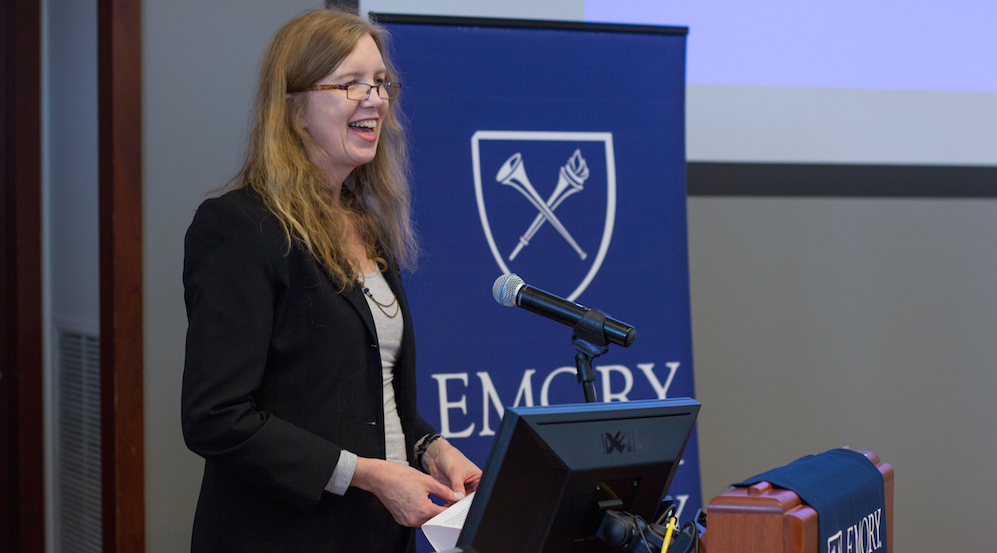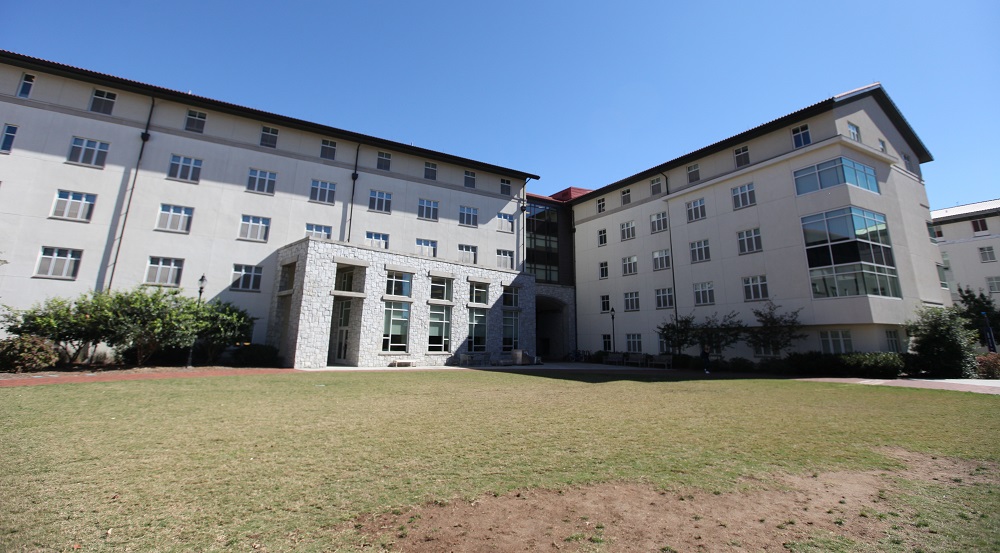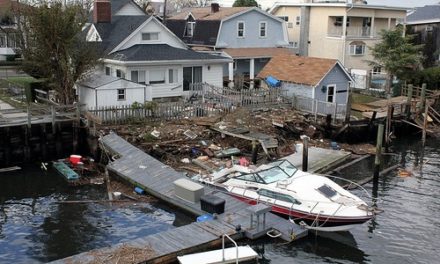
Pamela Scully, professor of Women’s, Gender and Sexuality Studies and African Studies, speaks at a panel titled “Ebola and the Law in the U.S. and West Africa: Treatment, Vaccine Development and Ethics.” Photo by Hagar Elsayed.
A panel examined the ethics and multifaceted nature of the Ebola virus pandemic at the Goizueta Business School on Monday.
Approximately 40 students, staff and faculty attended the panel, titled “Ebola and the Law in the U.S. and West Africa: Treatment, Vaccine Development and Ethics,” as three panelists described the virus’ many ethical, political and economic repercussions in a classroom on Goizueta’s top floor.
Sita Ranchod-Nilsson, the director of the Institute for Developing Nations (IDN), said she put together the panel along with Robert W. Woodruff Chair in Nursing Professor Deborah Bruner and Pamela Scully, a professor of the Department of Women’s, Gender and Sexuality Studies and a professor of African Studies.
The panel consisted of Scully as well as Polly Price, an Emory Law School professor and recipient of a Robert Wood Johnson Foundation Public Health Law research grant and Paul Wolpe, a professor in the Departments of Medicine, Pediatrics, Psychiatry and Sociology, Director of Emory’s Center for Ethics and first Senior Bioethicist for the National Aeronautics and Space Administration (NASA).
After introducing the panelists and the event, Scully thanked the IDN for organizing the event in conjunction with the Institute of African Studies and the Nell Hodgson Woodruff School of Nursing.
Price first presented his take on the ethics surrounding the epidemic. She described the wide array of actors who each play a part in global and public health decisions. She explained that while government involvement in public health measures is important, government responses are, for the most part, inadequate.
She discussed the World Health Organization’s (WHO) place in the epidemic. According to Price, WHO labeled the virus as a “public health emergency of international concern,” the third time the organization has used such a label to describe an outbreak.
Although Price called government involvement an important factor in health interventions, she questioned how much is too much government authority, and how much is too little. For example, she cited the United States’ border control’s barring the entry of any suspected contaminated non-citizen, while all citizens had to be offered reentry.
All U.S. citizens who were allowed reentry into the country could be immediately isolated against their will if believed to be contaminated with the disease.
Price then focused the conversation on Emory, explaining how the Liberian government’s consent for the first two Ebola patients to come to Emory was monumental, considering the governmental and non-governmental organizations’ interventions that had proceeded since their arrival. Price supplemented her presentation with photos of the planes carrying the first two Ebola patients treated at Emory University.
A problematic aspect of the intervention process, Price explained, was bringing aid to the West African nations in distress, as only one airline, Phoenix Air, is allowed to transport Ebola patients. This is because planes’ carrying capacities have been checked and approved by both the Centers for Disease Control and Prevention (CDC) and the U.S. Department of Defense.
Price also reviewed the great economical debates that became a part of the Ebola epidemic. She cited Minnesota’s decision to monitor 232 travelers, none of whom developed Ebola. The entire intervention cost them over $2 million.
Lastly, Price accused the November election of using Ebola for selfish, political purposes. According to Price, the Ebola pandemic was “all over the news” before the November election and is now hardly seen.
Wolpe, the following panelist, described the importance of differentiating between different types of ethics when considering public or global health interventions. He used the campaign to stop cigarette smoking as an example, and asked whether governments should incentivize people to stop smoking or create mandates that make it harder for them to smoke at all.
Wolpe discussed the agreement between the WHO and Food and Drug Administration (FDA) to use “unproven interventions” in such cases. Though the interventions were available, ethical conversations took place when officials decided to whom they would give vaccinations, he said.
Wolpe also examined possible public perception that officials decided to vaccinate Kent Brantly because of his status as a white male, regardless of whether or not his vaccination made the most sense. He also talked about ethics in hypothetical situations, such as possible scarcity of vaccines during a flu epidemic.
After Wolpe finished his speech, the panelists allowed questions from the audience. After the question-answer session, the audience erupted in applause.
This event was one of seven in a series meant to highlight the interdisciplinary nature of the Ebola pandemic and other diseases, Ranchod-Nilsson said. She added that the series was first planned in November 2014, when Ebola was front and center in the Emory community.
According to Ranchod-Nilsson, the purpose of the series is to utilize and showcase the abundant expertise present at Emory in a wide variety of departments. She added that the initiative was a response to the Coalition of the Liberal Arts’ (COLA) goal to increase “intellectual tailgating” and bring together different areas of academia at Emory.
Ranchod-Nilsson said that this type of work is relevant not only to Ebola but all diseases.
She added that “we have a lot to learn.”
— By Naomi Maisel, Senior Staff Writer





